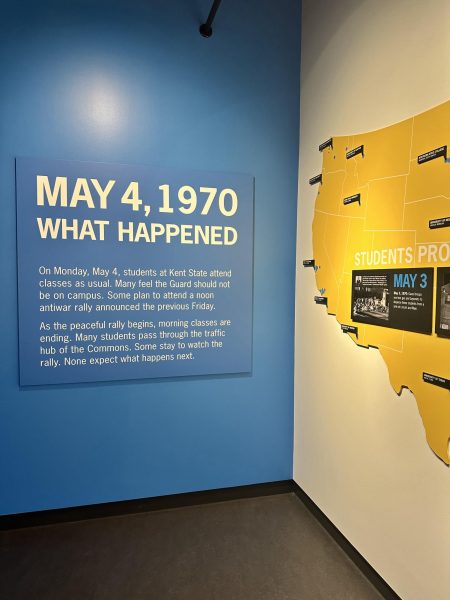Safety comes at an unnecessary price
October 2, 2007
As students, it really is heartening to know that the university administrators have our safety in mind.
Last spring’s tragedy at Virginia Tech, where a student shot and killed 33 people on campus, forced students, faculty and staff at universities across the nation to face the facts of how very vulnerable college campuses can be. People tend to think of higher education as a safe haven from the “real world,” a bubble where no harm can happen, but, unfortunately, this has been proven false time and time again.
Following the Virginia Tech tragedy, the Undergraduate Student Senate asked Kent State’s administration to use Mobile Campus to send mass alerts to students in the case of an emergency. Mobile Campus is a text messaging service that can send users coupons from local businesses, as well as mass messages from the more than 100 campus groups, Greek organizations or classes signed up with the service. Students and faculty are not bombarded with irrelevant messages. They can choose which groups they want to receive messages from. In the case of an emergency, the university has the option of sending messages to all users, even if they are not signed up for groups or coupons.
The senate had already brought the text messaging service to Kent State’s campus in October 2006. According to the Mobile Campus Web site, this service is free to the university. Participating students and faculty only have to pay whatever it normally costs them to receive a text message.
Sounds like a decent deal, right?
Rather than take advantage of a service Kent State was already a part of, the university sought out a different text messaging alert system, Flash ALERTS.
In the case of an emergency, Flash ALERTS allows the university to send a message to all its subscribers with details about the situation and any directions on what to do.
According to the university Web site, the system will also be used in the case of university delays and closings. Basically, Flash ALERTS serves as an extension of Kent State’s traditional news alerts, which can usually be found through Kent State’s homepage or mass e-mails.
So far, the plans look pretty similar, but there is one big catch: Flash ALERTS came with a $17,500 price tag — and that’s just for a one-year contract.
We’re all for safety, but it doesn’t make sense that the university would sign on to an entirely different system rather than promoting the emergency service Mobile Campus could already supply. It would have been free to the university with standard costs for users. And people still have to sign up to receive any type of message.
According to Scott Rainone, assistant director of University Communications and Marketing, about 4,000 people have already registered for Flash ALERTS. As of February 2007, Mobile Campus only had about a thousand users at Kent State.
Maybe because Mobile Campus can also be used to distribute coupons, some people avoided signing up because they don’t want spam. But users can choose who they want to receive messages from, and the university could have cleared up this misconception with a little advertising. They had to put together an advertising campaign to promote Flash ALERTS anyway.
The idea of finding another way to keep students, faculty and staff safe is a good one; we just wish the university would have taken advantage of something we already had, rather than tacking another bill onto Kent State’s lengthy IOU.
The above editorial is the consensus opinion of the Daily Kent Stater editorial board.
























